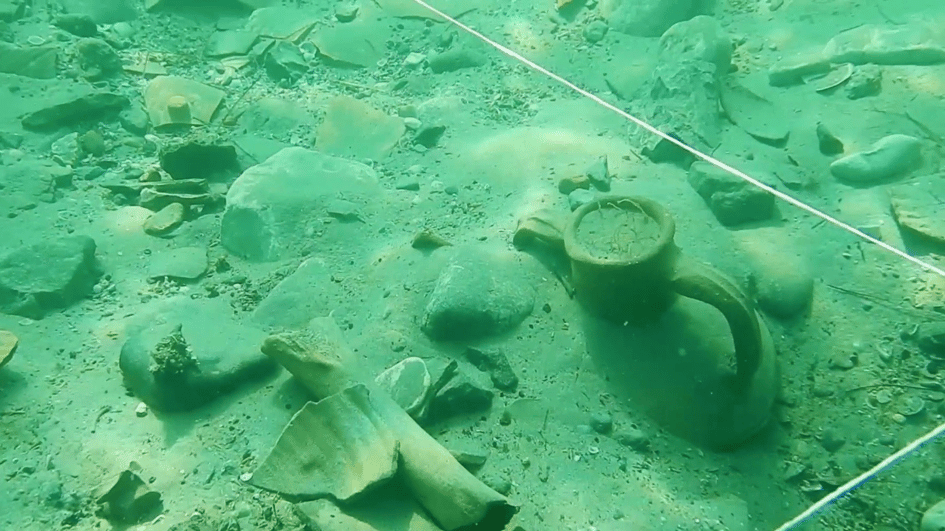
Historical artifacts discovered during the first scientific underwater excavations in the Black Sea, carried out in Kerpe Bay, once again reveal the hidden cultural treasure of the region, known as "Kalpe" in history.
Kerpe, where dozens of historical artifacts dating back to the 4th century B.C. to the 12th century A.D. have been unearthed, will become an underwater archaeology park that will boost diving tourism with a project set to be completed this year.
Located in the Kandıra district of the northwestern province of Kocaeli, which opens to the Black Sea, Kepre is known for its fertile climate since the Hellenistic period. Also known as Kalpe, which means "bowl, pot, jug, or jar" in the Hellenic language, Kerpe has been a commercial center throughout its history.
Kerpe Bay, which was a port of call for ships during the Roman, Byzantine and Genoese periods, also met Istanbul's needs such as wood, coal and logs during the Ottoman era.
Having an active commercial life in its history, Kerpe has been undergoing underwater excavations since in 2020, as the majority of the breakwater ruins of the Ancient Kalpe Port are still under the water.
The work, carried out by the Kocaeli Museum Directorate, aroused great interest as the first scientific underwater excavation on the Black Sea coast of Türkiye.
The excavation team, which dived to reach the ruins scattered over an area of approximately 2,000 square meters, discovered traces of the past at a depth of 4 meters, 80 meters off the coast.
Dating back to the 4th century B.C. to the 12th century A.D., the artifacts underwater include two breakwater fragments from the ancient port and many amphora remains.
These works are being presented to history lovers in an exhibition called "Silent Harbor of the Black Sea: Kalpe" at the Kocaeli Archaeology Museum. Visitors are accompanied by the Kocaeli Museum Directorate Çukurbağ Archaeological Excavation Team and provided information about the excavations and the historical artifacts found.
On the other hand, the "Kerpe Underwater Archaeology Park Project," prepared by the Kocaeli Museum Directorate, has been approved within the framework of the Support Program of the Eastern Marmara Development Agency (MARKA). With the project, an underwater archeopark will be established where real artifacts will be exhibited for the first time in Türkiye.
Also tourism potential of the region will increase and it will also be opened to diving tourism.
Kocaeli Museum Director Serkan Gedük said that they found important artifacts during the underwater excavations.
Stating that they exhibited these cultural assets at the Kocaeli Archaeology Museum, dedicated to the 100th anniversary of the Republic of Türkiye, Gedük said that the exhibition is presented to highlight the richness of underwater history in the region.
Gedük emphasized that this work carried out in Kerpe Bay is the first scientific underwater excavation on the Black Sea coast of Türkiye and therefore it is of great importance.
“Black Sea is extremely important in terms of emphasizing the commercial relations between the east and west from ancient times to the Ottoman era. In this context, we exhibit the cultural assets unearthed during underwater excavations in the museum chronologically and with some animations. We have unearthed commercial amphora ruins, red-lined ceramics, oil lamps, pipe pieces, some cultural assets from the Ottomans, and shipwreck ruins in the region,” he said.
Gedük also noted that the "Kerpe Underwater Archaeopark Project" will be implemented in the region with the support of the General Directorate of Cultural Heritage and Museums and the Eastern Marmara Development Agency.
Stating that this pilot project is set to be completed in 2024, Gedük said, "With the project, we plan to open the region especially to diving tourism.”